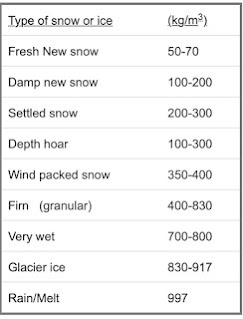We could be cashing in on all the snow we get here. Let's build snow melting plants and get water pipelines to California or Nevada where the drought is severe. We have oil pipeline from Alaska to Texas. We could do the same with snow: WATER THE NEW OIL..But Kristi Noem will think I am on Meth to suggest that idea. [Baka Bagoubadi]Good idea but it’s not really new. In 2011 an interested party wondered whether compressing snow into ice and loading it onto flat rail cars might work. The capacity of the Glen Canyon Dam on the Colorado River is 27,000,000 acre-feet.
If East River would either carve ice out of the James and Big Sioux Rivers, load it onto side-dump railcars or pump flood water into tank cars, or both, then dump it into the Colorado's closest tributary, the Green River in Wyoming, South Dakota could sell that water to Las Vegas and Phoenix. [interested party]Instead of empowering communities to harvest snow melt and rain water rural communities continue to be dependent on politicians who exploit need.
Diesel fired portable snowmelters are the most popular models since you can move them from site to site as self-contained units. Current portable snowmelters come with a debris catch area with baskets for manual removal of debris - even during operation! The SND5400 is designed for the airport market and other large-scale users. It economically melts 180 tons of snow per hour (based on latent heat of ice). [Snow Dragon Snowmelters]That’s about 5421 gallons per hour and a rail tanker holds about 30,000 gallons. An acre-foot of water is almost 326,000 gallons.
Use of federal dollars means a vote in Congress and a new pipeline would rip up over a hundred miles of unceded tribal lands where thousands of Indigenous Americans are buried.
A pipeline to carry water to Aberdeen from the Missouri River would cost upwards of $271 million, but state and federal funding options are available. The potential 104-mile pipeline would draw from the Missouri River at Lake Oahe near Mobridge and pipe it to the city's water treatment plant. While the report recommends using cement mortar-lined steel pipe, Doug Mund from Bartlett & West said there is currently a surplus of welded steel pipe available because of recently canceled oil pipeline projects. "A few months ago, there were 1,000 miles of pipe available," he said. "We can see a significant pipe savings between surplus and regular price." Using that surplus pipe would put the estimated cost around $291 million. [Aberdeen American News]

No comments:
Post a Comment